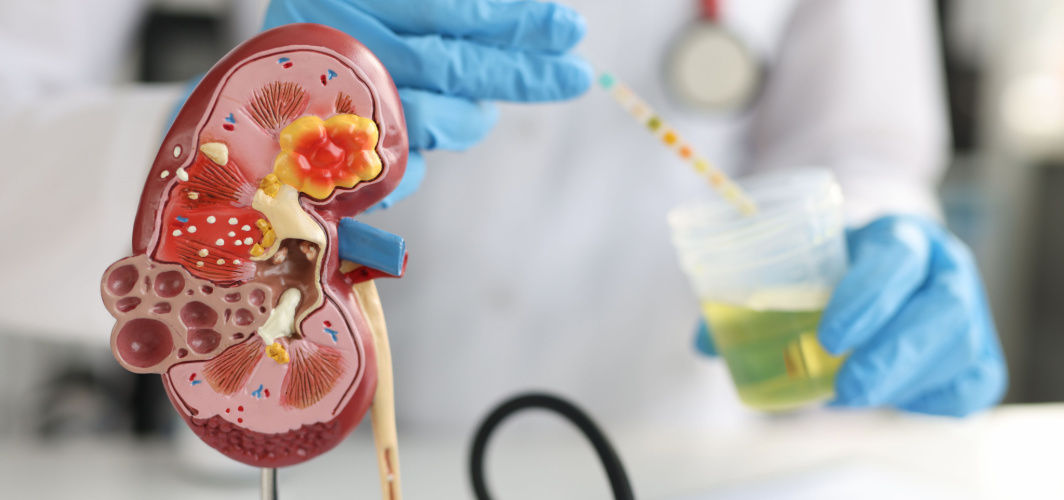General Health
Thyroid and Hair Loss: Understanding the Connection
2 min read
By Apollo 24|7, Reviewed by Dr. Srividya Kalavagunta, Verified by Dr. Ima Rashid, Published on - 16 May 2024, Updated on - 22 May 2024
Share this article
0
0 like
%20(1).jpg?tr=q-80)
Thyroid disorders are among the most common chronic conditions affecting multiple lives. The chances of thyroid issues developing in women are five to eight times higher than in men. Any disruptions in the functioning of the thyroid gland, which is responsible for regulating energy levels and metabolism, can lead to several symptoms, including hair loss.
Relationship between Thyroid Disorders and Hair Loss
The hormones secreted by the thyroid gland are responsible for the growth cycle of hair follicles. Abnormal thyroid hormone levels can cause hair loss or thinning, preventing hair follicles from regenerating. Individuals with low thyroid hormone levels are known to have hypothyroidism or an underactive thyroid. Studies indicate that many people experiencing hair loss have low thyroid hormone levels.
Signs & Symptoms of Hypothyroidism
People with low levels of thyroid hormone can experience these symptoms:
- Weight gain
- Feeling cold (cold intolerance)
- Fatigue
- Muscle weakness
- Constipation
- Dry, brittle skin
- Change in voice
- Along with depression, difficulties concentrating, and memory issues
- In women, it includes irregularities in menstrual cycles.
Managing and Treating Thyroid-related Hair Loss
Fortunately, low thyroid levels can be treated by replacing thyroid hormones with synthetic hormones like levothyroxine. Once the thyroid hormones are restored, associated symptoms like hair loss will consequently improve, and regrowth can be observed, but it takes a few months to notice the improvements. Besides, one can make lifestyle and dietary changes to boost thyroid health and hair growth.
Dietary Changes for Treating Thyroid-related Hair Loss
A balanced diet rich in nutrients like zinc, iodine, and selenium can improve overall hair health and thyroid function. Vegetable and fruit portions with each meal, Dairy products, seafood, nuts, and seeds are great nutrients that can promote overall hair health. Drinking 6 to 8 glasses of water daily and avoiding processed food is also beneficial.
Additional Strategies for Managing Thyroid-Related Hair Loss
Medications, dietary changes, and lifestyle modifications can enhance thyroid function and hair health. Another method to enhance hair condition is by regulating stress. One can do breathing exercises, yoga, and meditation to deal with stress. Apart from that, a person has to be physically active by walking, swimming, and jogging. Besides, sleeping well every night is the key to improving overall health.
Hair Care Tips
Although treating underlying thyroid disorders is vital for addressing hair loss, following a hair care routine can promote growth. Some ways to reduce hair damage and maximize hair health are using mild hair products and avoiding excessive heat and chemical treatments. One must also trim one's hair regularly to prevent or reduce split ends and avoid using traction in hairstyles that pull the scalp.
Takeaway
Thyroid imbalances can affect various aspects of health, including hair health. Understanding the link between thyroid imbalance and hair loss is crucial in devising effective treatment and management strategies for thyroid-related hair loss. Seek the advice of a healthcare professional if you feel that your hair loss is caused by an imbalance of thyroid hormones in the body.
Services
General Health
Consult Top Endocrinologists
View AllLeave Comment
Services
Recommended for you
%20(2).jpg?tr=q-80)
General Health
Thyroid Normal Value in Female: Common Symptoms of Abnormal Thyroid Levels
Learn about thyroid normal values in females, common symptoms of thyroid disorders, and essential tests for diagnosis. Stay informed for better thyroid health.

General Health
KFT Test: All You Need To Know About Kidney Function Test
Kidney function tests are crucial in evaluating the health of your kidneys. These tests measure key parameters like glomerular filtration rate (GFR), creatinine levels, and urine protein. GFR indicates how well your kidneys filter waste, while abnormal levels may indicate kidney disease.
.jpg?tr=q-80)
General Health
Feeling Dizzy Often? You Might Need These Tests
Feeling dizzy frequently? Learn about common causes like anaemia, thyroid issues, or inner ear problems—and discover key medical tests that help diagnose the root of persistent dizziness, especially in women and the elderly.
Subscribe
Sign up for our free Health Library Daily Newsletter
Get doctor-approved health tips, news, and more.
Visual Stories

Could There Be More to Your Snore?
Tap to continue exploring
Recommended for you
%20(2).jpg?tr=q-80)
General Health
Thyroid Normal Value in Female: Common Symptoms of Abnormal Thyroid Levels
Learn about thyroid normal values in females, common symptoms of thyroid disorders, and essential tests for diagnosis. Stay informed for better thyroid health.

General Health
KFT Test: All You Need To Know About Kidney Function Test
Kidney function tests are crucial in evaluating the health of your kidneys. These tests measure key parameters like glomerular filtration rate (GFR), creatinine levels, and urine protein. GFR indicates how well your kidneys filter waste, while abnormal levels may indicate kidney disease.
.jpg?tr=q-80)
General Health
Feeling Dizzy Often? You Might Need These Tests
Feeling dizzy frequently? Learn about common causes like anaemia, thyroid issues, or inner ear problems—and discover key medical tests that help diagnose the root of persistent dizziness, especially in women and the elderly.


